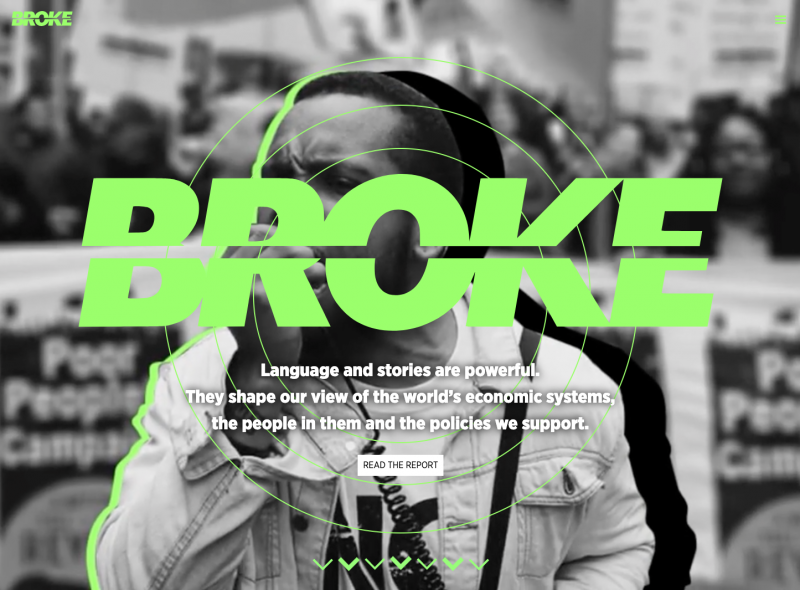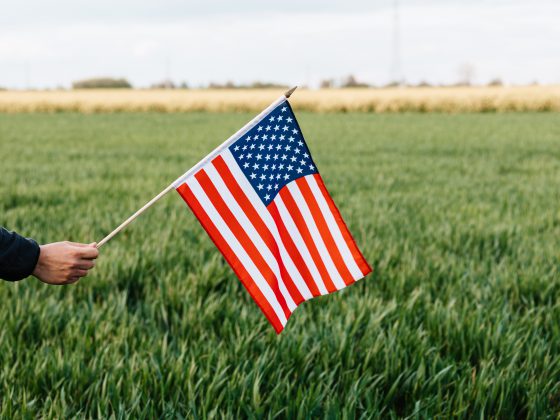In 2019, the Center for Public Interest Communications and the Radical Communicators Network co-applied for the Gates Grand Economic Challenge and earned a small grant from the Omidyar Network to collaborate on a project focused on narratives about poverty. Early on, we decided to focus on both poverty and wealth narratives to tell a complete story—because poverty and wealth are two sides of the same coin.
“EVERYTHING WE BELIEVE COMES FROM STORIES WE’VE BEEN TOLD.”
–HEATHER MCGHEE
Joined by Milli, our project, BROKE, combines the science of storytelling–applying what research tells us makes stories more memorable, inspiring, and actionable, narrative power– a framework for social movements to take advantage of political opportunities, construct narrative interventions, disrupt hegemonic thinking, and intervene to expand the collective perception of what is socially, economically, and politically possible– crafting resources for activists and communicators that are easy to use and incorporate into their work.
We focused inward on the nonprofit and philanthropic sectors because although there are many organizations advancing liberatory narratives, other well-intentioned organizations invoke harmful tropes as a way of demonstrating their organizational effectiveness. They tell stories about how their organization has contributed to the end of individual poverty. When this happens, people with lived experience–the people who lived the stories–lose control over when and how their stories are used. Stories of individual triumph or success crowd out stories that help people see the ways systems are designed to privilege the few over the many. As a result, we come up with the wrong solutions.
BROKE, a colloquialism we use to describe when we’re out of money, has become a stand-in for not having enough. And while it is often used flippantly, it distracts us from the broken systems shaped and reshaped to advantage some and oppress others, as well as the stories that protect those systems—stories that insist both poverty and wealth are the result of individual choices.
This project synthesizes what we learned from the research and offers a set of recommendations grounded in the science of storytelling. To arrive at these recommendations, we conducted a literature review focused on understanding prevalent narratives about poverty, a content analysis zeroing in on the storytelling of anti-poverty organizations on social media, and interviews with practitioners who are doing it well. Altogether, we highlight bright spots, and we answer the questions:
- What are the narratives about poverty and wealth coming from the nonprofit and philanthropic sector?
- Do these narratives demonstrate the best of what we’ve learned from research and practice about how to tell stories that transform systems?
Narratives have the power to shape solutions, public opinion, and even the way we feel about ourselves. When we share narratives grounded in truth, and a belief in the humanity of all people, we create more just solutions, build empathy, and change culture. This is why we have focused both on understanding the history of narratives around poverty and wealth and helping new narratives emerge.
With these tools, we provide the nonprofit and philanthropic communities with an easy-to-use reference for communicating accurately and justly about how the rich got rich and why the poor stay poor, as well as how to use the science of storytelling to advance economic justice for all. It is also an opportunity for the nonprofit sector to confront the harmful narratives it perpetuates and to do better.



